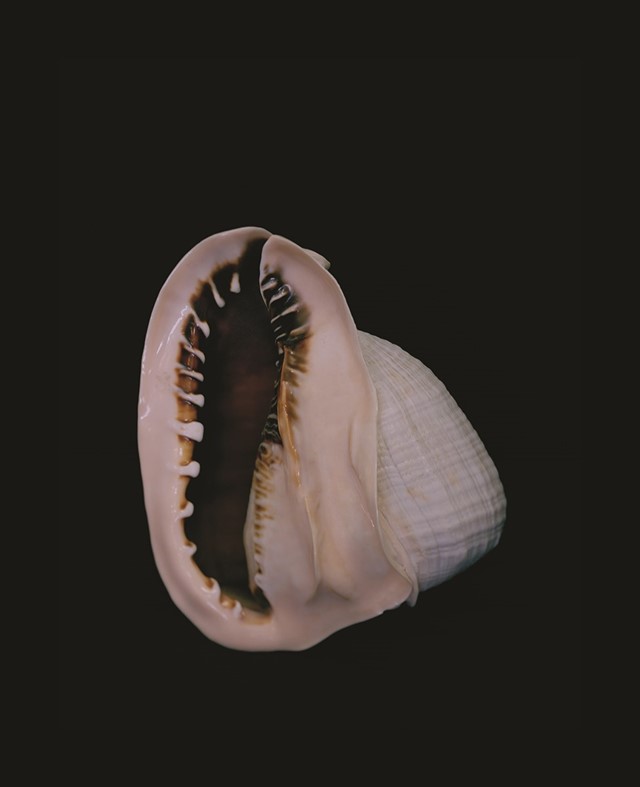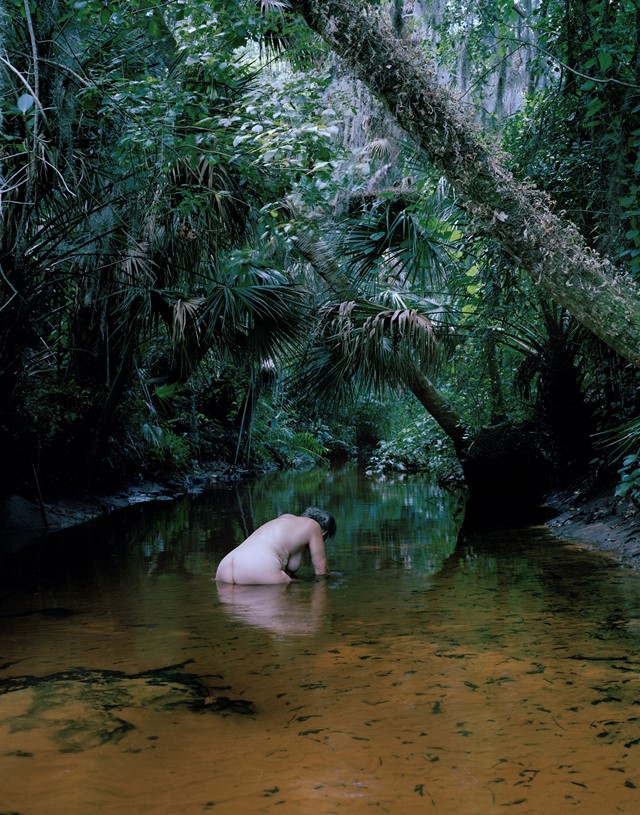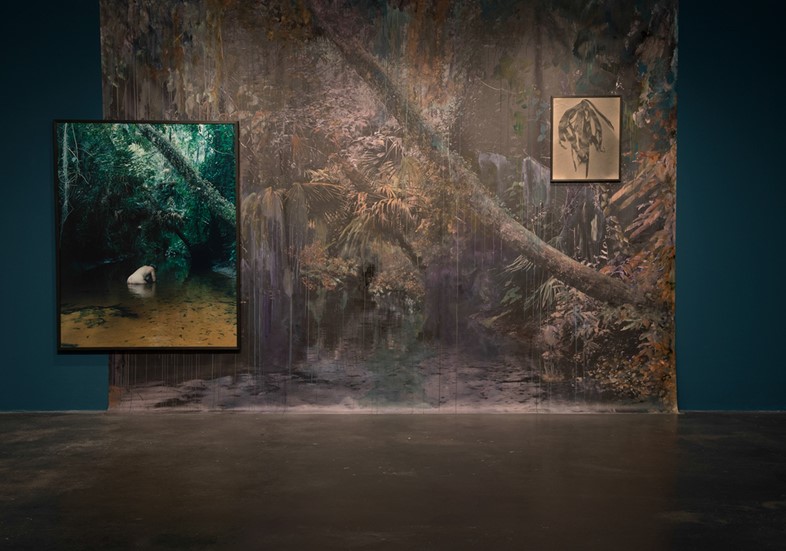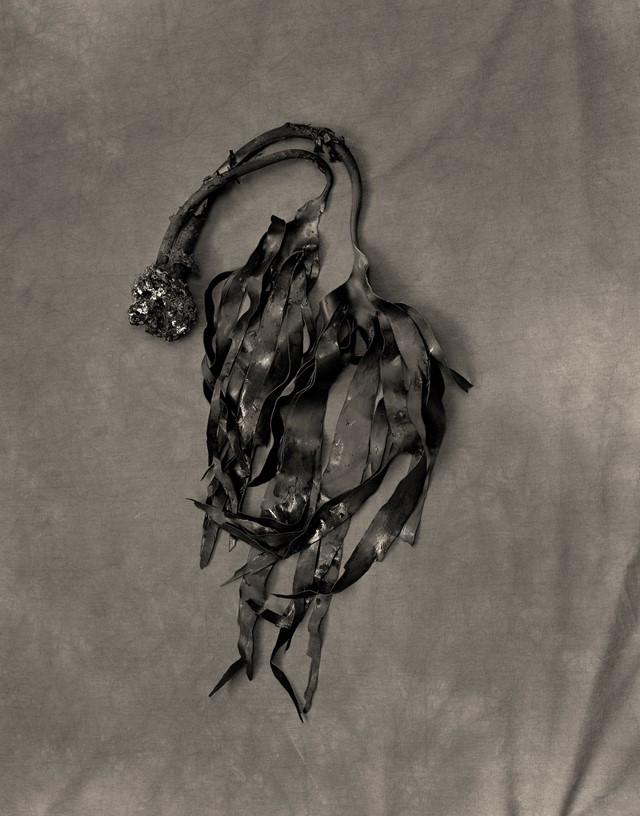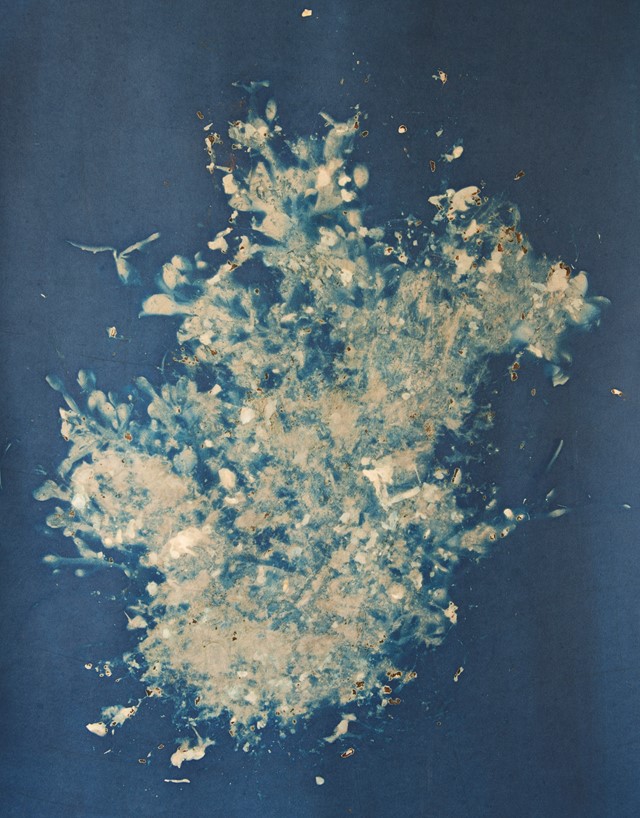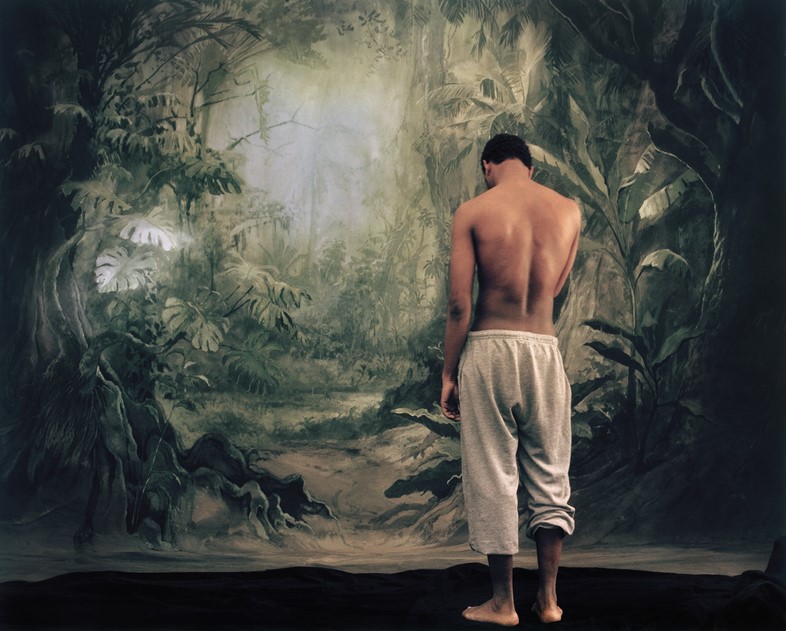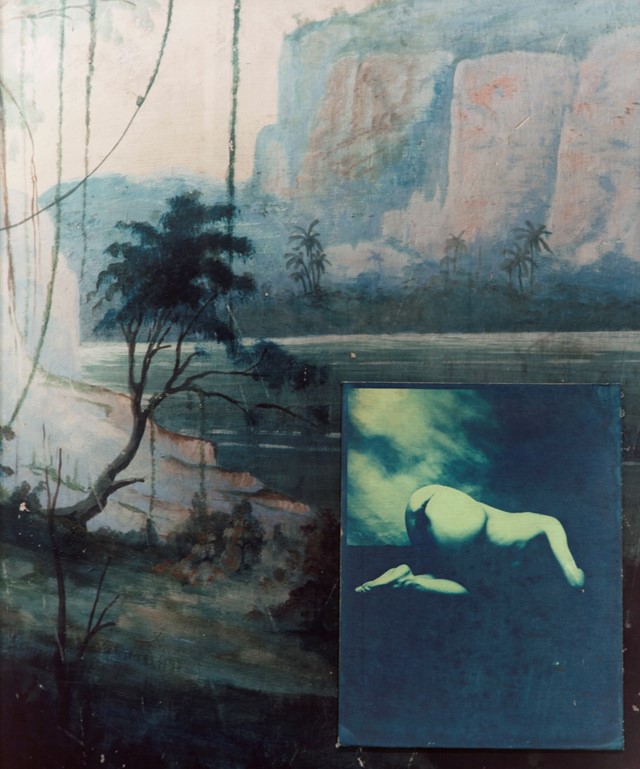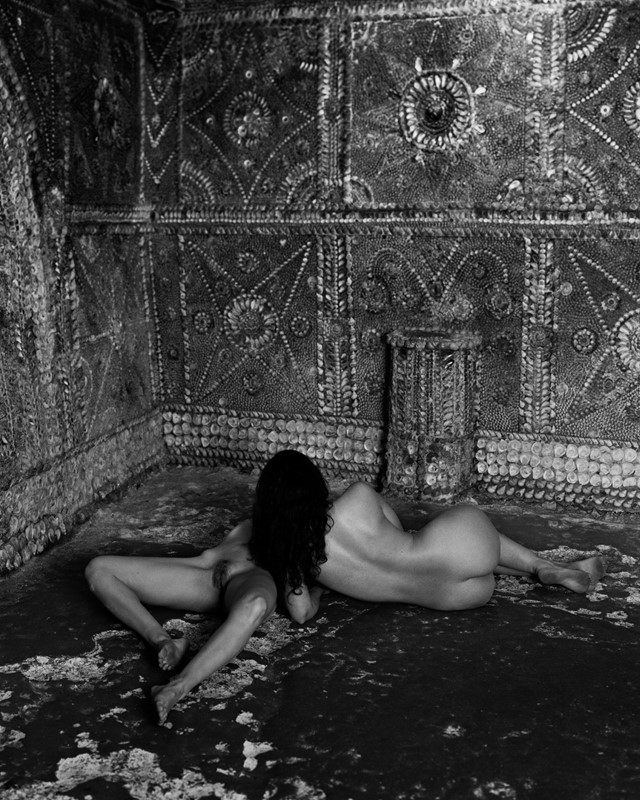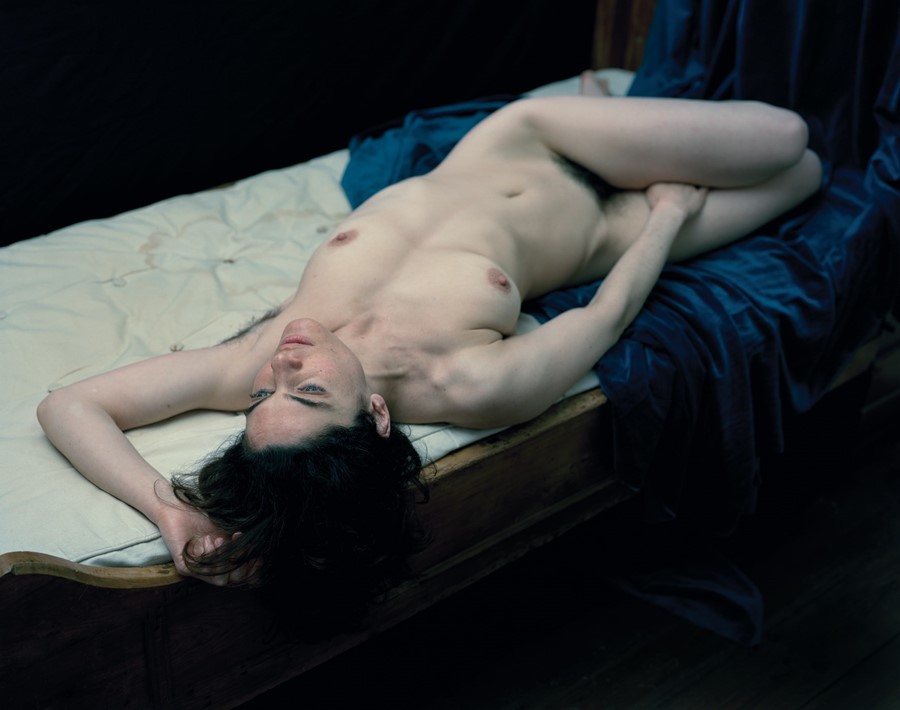Esther Teichmann’s photography – rich, sombre, enveloping scenes of women wading through rainforest rivers, still life shots of seashells, nude female figures reclining on swathes of velvet and blue cotton sheets – are not intended to be enjoyed from afar. Rather, she presents her unfolding bodies of work through film, or books, or, preferably, through installations which envelop the viewer even as they stand before them. At least, this is the case with Mondschwimmen. "Mondschwimmen was the title of an exhibition that I had last summer in Germany, and that brought together the last sort of five or six years of work," Teichmann explains. “Translated it’s something like 'moonswimming,' or 'moondiving.'"
'Moondiving' is a strangely appropriate moniker for a collection of images so mystical in their subject matter. Tiny fragments of autobiography and fiction combine to create a narrative which is at once familiar and utterly strange, before sinking away again to rejoin the fantastical world the artist and photographer has built through her practice. "All of the work is very much about storytelling in different ways," Teichmann explains. "It looks at this slippage between autobiography and fiction, and sort of a mythologization of our own narrative. Whether it’s moving images, installations, sculpture or photographic pieces, they are always looking at the relationship between loss and desire. And I guess, also, a relationship to – without sounding melodramatic – the ecstatic. It’s thinking about our universal desire for something that moves us beyond ourselves, and outside of ourselves, and makes us feel alive."
Bodies of water, she goes on to explain, have always been present within her work, even when Teichmann was studying. "On the one hand there are autobiographical reasons for that, as I swam competitively as a teenager," she says. "But also, I grew up in a little village in Germany, right near a lake in the valley of the Black Forest." These lakes, rivers and waterfalls have a metaphorical resonance too, however. "Symbolically, water is a return to a space before we remember, a primordial space of contained within the mother’s body. So, in some way, I played with that allegorically."
Meanwhile, the nude body is an unmissable theme denoting sensuality and the human experience, and recurring in various panels like a thread which pulls her fantasy world together. "I’m interested in creating something that I can draw upon and re-position, almost like an archive that builds up," she says. "It all interconnects, like these part components that all make sense in different ways and together that tell different stories, but are still all part of the one larger fantastical thing."
Writing is a key part of this world. At the centre of artist's book Mondschwimmen sit three short stories which breathe vitality into Teichmann's characters, and bring new understanding to her scenes. "I’m sort of re-working it, and re-curating it, and adding to it, and the writing kind of is one of those components," she says. "They’re not separated out, they just keeping reconfiguring in different ways, whether it’s an exhibition, or a publication, or not even my own work." In this way, every element of Teichmann's practice becomes a fragment of a greater whole – a rich, storied universe which seeks to reconnect its viewer with themselves, and their landscape, and their emotional self. It's a fascinating way of working, and judging from the richly sensuous works which have already emerged from her practice, it looks set to create wonderful things.
Esther Teichmann: Mondschwimmen is out now, published by Zephyr, Reiss-Engelhorn-Museum. With special thanks to Flowers Gallery.
